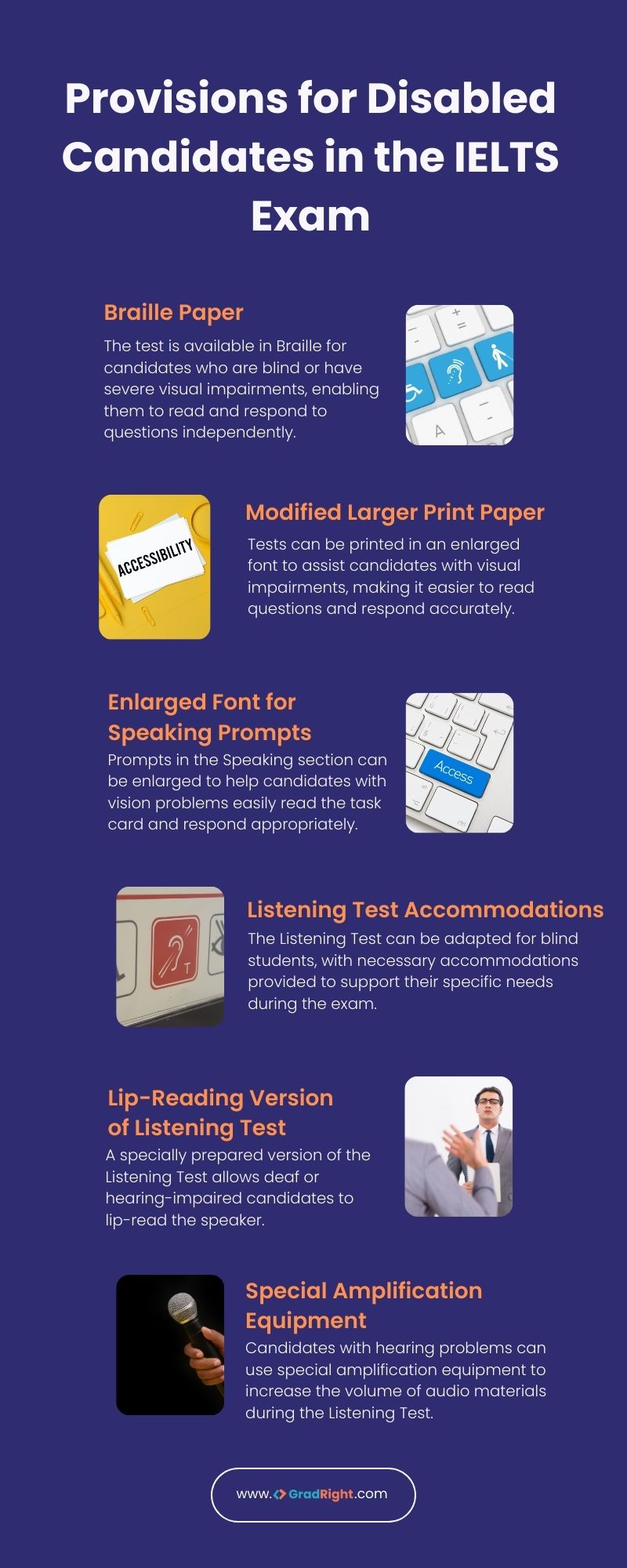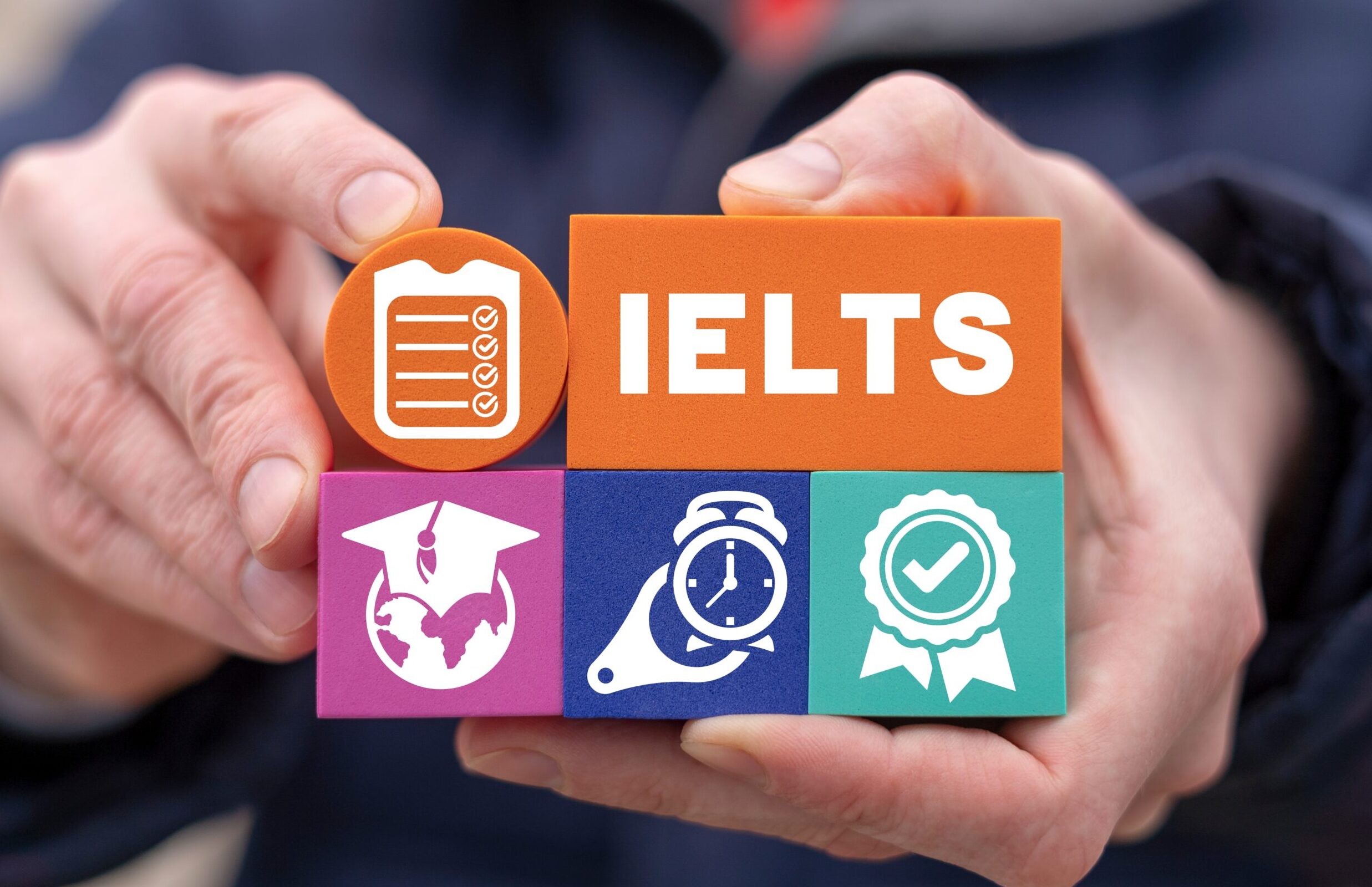The International English Language Testing System (IELTS) is a test of English-language proficiency. Every year, millions of people who wish to study, work, or migrate to English-speaking countries take the IELTS test. Established in 1989, IELTS is jointly managed by the British Council, IDP: IELTS Australia, and Cambridge Assessment English.
Anyone over the age of 16 is eligible to take the IELTS exam, regardless of their nationality, education, or work background. Moreover, there are no specific academic qualifications required for taking this exam. Whether you are a student aiming for a university, a professional looking to advance your career, or someone planning to move to a new country, a good IELTS score can boost your chances of success.
What is the IELTS Exam?
The International English Language Testing System (IELTS) is a globally recognized English language proficiency examination aimed at non-native speakers. It was developed by the British Council, IDP, and Cambridge English to evaluate four fundamental language skills across four sections of the exam: Listening, Reading, Writing, and Speaking.
Today, more than 12,000 organizations, institutions, and employers worldwide accept IELTS results for university admissions, employment, and immigration purposes in English-speaking countries.
The IELTS test can be easily completed within 2 hours and 45 minutes. The exam has 4 different sections: Listening, Reading, Writing, and Speaking sections. The first three sections are usually conducted on the same day. However, the Speaking section may be scheduled on a different day.
There are two main types of IELTS tests:
- Academic Test: The IELTS Academic Test is meant for students who want to pursue higher education in major English-speaking countries. It is also important for professionals like doctors and nurses seeking professional registration in English-speaking countries.
- General Training Test: The IELTS General Training test is designed for those who want to migrate for work to an English-speaking country like Australia, Canada, New Zealand, and the UK.
The Reading and Writing sections for both the Academic and General Training Tests are the same, whereas the Listening and Speaking sections are different across these test types.
Now that we know the necessary details about the IELTS examination, let us understand the educational qualifications required to take this exam.
What are the educational qualifications for the IELTS exam?
There is no specific educational qualification required to take the IELTS exam. Candidates from any educational background are eligible to appear for the test. The minimum age to take the IELTS exam is 16 years, and there is no upper age limit.
While there are no fixed educational qualifications, you should check the eligibility criteria of the educational institutions where you wish to apply. This ensures that you meet their specific requirements for admission.
Apart from the educational qualifications, you should also be mindful of the documents required for the IELTS exam. Ensuring all the necessary documentation is in order will help ensure a smooth registration and examination process.
What are the documents required for an IELTS exam?
To take the IELTS examination, students need a valid passport or national ID, depending on which one was used for registration. Candidates must bring this identification on test day, as it will be checked before entering the test room and again by the IELTS Speaking test examiner. Other forms of identification, such as driving licenses or student IDs, are not accepted.
Additionally, candidates should not bring personal belongings to the exam hall. Mobile phones and electronic devices are not allowed in the examination room and must be switched off and placed in a designated area arranged by the test supervisor.
For the IELTS on paper test, you can bring pens, pencils, and erasers. However, for the IELTS on computer test, paper and pencils are provided for you. It is also not recommended to bring any valuable items to the test venue.
Children or family members are not allowed to enter the IELTS test venue. If someone needs to wait for you, please ask them to wait outside the venue.
IELTS at Home eligibility criteria and requirements
The registration criteria for the IELTS Online test are the same as for the traditional test. In addition, there are specific technical requirements that candidates must fulfill to successfully take this test. Here are the technical criteria:
- The candidate must have a private room with good lighting and no noise or disturbances.
- A stable internet connection is essential, with recommended minimum download and upload speeds of 2Mbps and 1Mbps, respectively.
- The candidate should have a computer or laptop running on Windows or macOS, equipped with a webcam, microphone, speakers, and a single screen.
- The Inspera Exam Portal software must be downloaded at least a day before the test.
- The candidate must budget 2 hours and 45 minutes of uninterrupted time to take the full test.
Note that the test format, content, and timing for the IELTS Online test are the same as that for the IELTS Academic test taken at a test center. The Listening, Reading, and Writing sections are taken fully online, and the Speaking test is taken via video call with a certified IELTS examiner.
What are the IELTS eligibility criteria for disabled candidates?
IELTS is committed to giving equal opportunities to all test-takers. This also includes candidates with any form of disability.
If you have a disability or special need, contact the test center as soon as possible to discuss your situation, so that they can make arrangements to meet your needs. The test center can make many different testing arrangements for you, including:
- Braille paper: The test can be made available in Braille for candidates who are blind or don’t have enough vision to read and respond to questions independently.
- Modified larger print paper: The test can be printed in an enlarged font to assist candidates with visual impairments and to make reading questions easier.
- Enlarged font for prompts on the speaking task card: The prompts used in the Speaking section can be enlarged so candidates with vision problems can easily read them.
- Listening Test: The Listening Test can be taken by students who are blind, with accommodations provided to support their needs.
- Lip-reading version of the Listening test: This version is specially prepared for candidates who are either deaf or have a hearing impairment. In the lip-reading version of the listening test, they can lip-read the speaker in the Listening test and understand the audio material better.
- Special amplification equipment: Special amplification equipment can be provided to candidates suffering from hearing problems to amplify the volume of audio material used during the Listening test.

For candidates with specific learning difficulties like dyslexia, evidence must be provided in the form of a letter or report prepared when the candidate was aged 13 or older. This document should detail the extent of the disability and must have been issued by a qualified professional.
In only the rarest cases will candidates with very severe speech or hearing impairments be exempt from the Speaking and/or Listening test.
How to prepare for the IELTS Exam?
Preparing for the IELTS Test needs a strategic approach. Some effective ways to get ready for this exam include:
- Understand the test format: Understand the format of the IELTS exam and learn about the different question types to expect.
- Take practice tests: Practice tests can help familiarize you with the test environment. They also help you learn time management and adapt to the test format.
- Improve specific language skills: Learn more words and work on your grammar, vocabulary, and pronunciation. You should also read more books and listen to podcasts to improve your listening and speaking skills.
- Use official resources: Make use of resources from official IELTS websites.
In addition to the official resources provided by the IELTS testing organization, you can also use the resources below to practice and improve your skills:
| Website | Details |
| British Council | Provides free online practice tests, materials, and tips for all sections of the IELTS test. |
| BestMyTest | Provides free IELTS mock tests, sample questions, and customized study plans. |
| IELTS Advantage | Provides many articles on IELTS preparation along with tips and tricks to improve your skills. |
| Mini-IELTS | Provides online training and practice tests that will help you score better on the IELTS exam. |
Scoring well in the IELTS exam is only one part of your application to study abroad. Next, it is important to choose a program that best suits your requirements and fits your budget. With hundreds of good programs to compare, it’s hard for students to make up their minds on the right program. In fact, the whole process can be so time-consuming and cumbersome that most students end up in programs that don’t offer them the best ROI.
Here’s how SelectRight can simplify the process:
SelectRight uses an AI algorithm that analyzes over 8 million data points to identify the best universities and programs for you. It matches programs and universities to your academic, personal, and professional profile to ensure you get a shortlist of universities where you are most likely to gain admission, secure funding, and which align with your career goals.
Here’s how SelectRight works:
- First, you create an account and complete your profile with your academic scores, desired program, and budget.
- Next, the AI algorithm processes your information and provides a curated list of programs and universities that match your criteria.
- You can then compare these programs using detailed insights and data.
- After that, finalize your choice based on comprehensive data and expert advice.
- Finally, connect with alumni and experts and start building your community.
So, if you are targeting admissions for Spring ‘25, now is the time to create your profile on SelectRight and find the best programs you can apply to.
Finding your perfect university is a significant milestone in your journey to study abroad. The next big milestone is securing the right education loan.
While many lenders and NBFCs in India and abroad offer student education loans, the challenge lies in comparing and applying to multiple products. Students often end up with an education loan that isn’t the best they could have obtained. When even a 0.5% savings in interest rate could mean saving several lakhs, students invariably end up paying more on their education loans.
Thankfully, FundRight has solved this problem. Instead of following the traditional search process, students just need to create a profile on FundRight. Within two days, they can receive up to 15 offers from some of the best banks and NBFCs that offer education loans.
Here’s how FundRight works:
- First, sign up on FundRight and create your free profile.
- Then, wait as multiple competitive loan offers start coming in from different lenders within the first two days.
- Next, speak with a financial expert from FundRight who can provide unbiased advice on which loan offer is best for you and help you negotiate with the lender based on your academic profile.
- Securely upload all the required documents via the portal rather than submitting paper versions to a bank.
- Finally, wait for your loan approval decision, which can come in as little as 10 days.
By using SelectRight and FundRight, you can simplify your journey to study abroad and ensure you make the best choices for your education and financial needs.
FAQs
1. How many IELTS practice tests should I take and when is the best time to do so?
You can attempt as many practice tests as you want. However, you should attempt practice tests in a strategic manner, rather than haphazardly. You can start with a few tests early in your preparation journey, to get a sense of your skillset and identify the areas where you need to invest more effort. As your exam date approaches, increase the number of practice tests. This helps get you attuned to exam conditions and also helps build confidence. You should aim to complete several practice tests in the weeks leading up to the exam. This will help you refine your skills and improve your performance.
2. Can the IELTS Progress Check help identify my weaknesses?
Ans: Yes, the IELTS Progress Check is designed to help you identify your weaknesses. This practice test allows you to complete all four sections of the IELTS under timed conditions. After you submit the test, you get an indicative band score and a detailed feedback report. The report provides section-wise scores and insights about your performance, especially in the Speaking and Writing sections. This feedback helps you identify weaknesses and improve your study plan.
3. What does the IELTS examination syllabus include, and is one day sufficient for preparation?
Ans: The IELTS exam syllabus consists of several question types for the Writing, Reading, Listening, and Speaking sections. However, one day is not enough to prepare for the IELTS exam. IELTS training professionals recommend that students should practice and study for at least 6-8 weeks prior to the exam to ensure they are well-prepared.
4. How do I apply for the IELTS exam?
Ans: Candidates can apply for the IELTS examination both online and offline. For online registration, applicants can visit the official IDP IELTS website, where they can select their preferred test date and location. For offline registration, candidates have to visit the nearest IDP branch and fill out a physical application form.


















